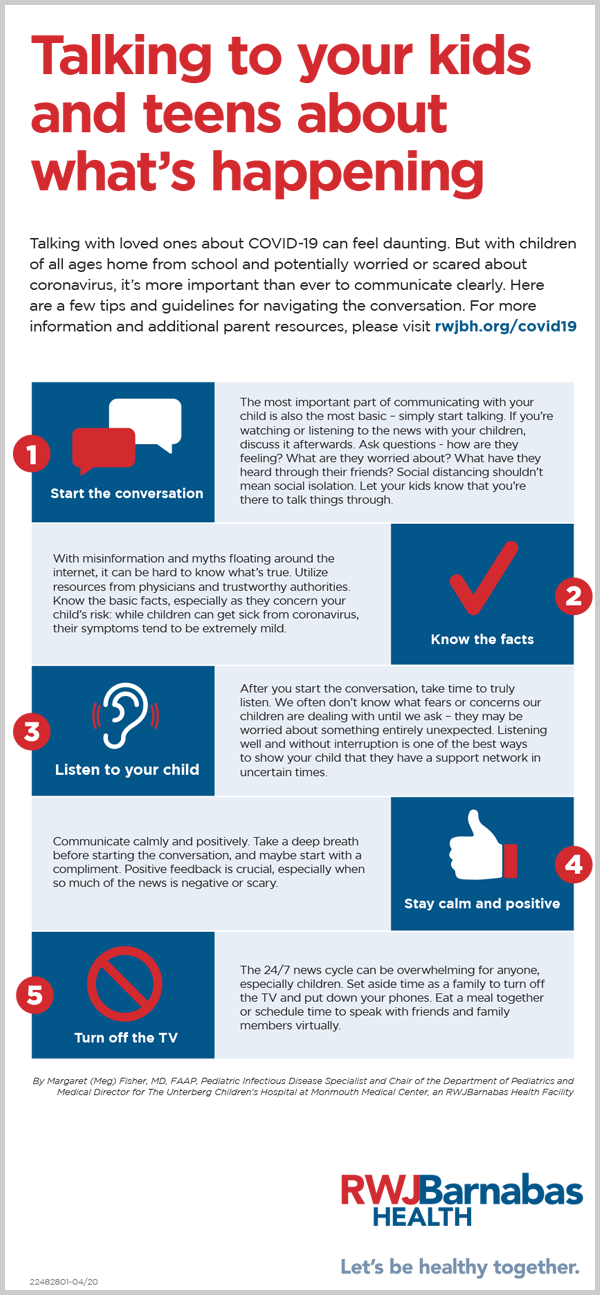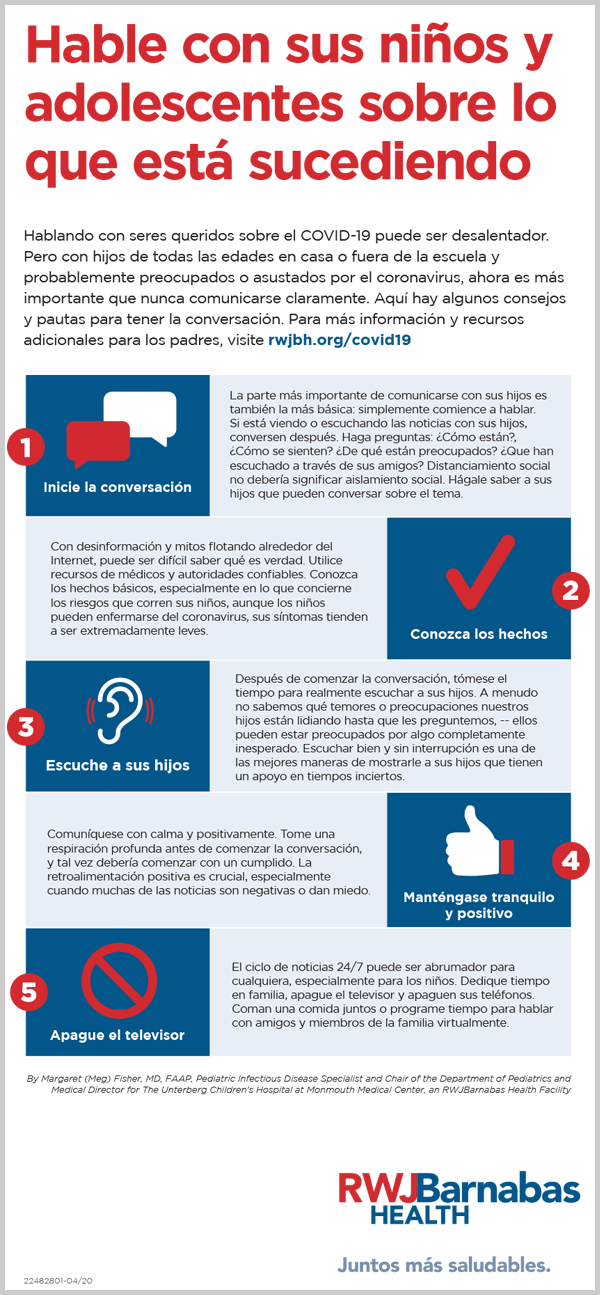Talking with loved ones about COVID-19 can feel daunting. But with children of all ages home from school and potentially worried or scared about coronavirus, it’s more important than ever to communicate clearly. Here are a few tips and guidelines for navigating the conversation.
Start the conversation
The most important part of communicating with your child is also the most basic – simply start talking. If you’re watching or listening to the news with your children, discuss it afterwards. Ask questions - how are they feeling? What are they worried about? What have they heard through their friends? Social distancing shouldn’t mean social isolation. Let your kids know that you’re there to talk things through.
Know the facts
With misinformation and myths floating around the internet, it can be hard to know what’s true. Utilize resources from physicians and trustworthy authorities. Know the basic facts, especially as they concern your child’s risk: while children can get sick from coronavirus, their symptoms tend to be extremely mild.
Stay calm and positive
Communicate calmly and positively. Take a deep breath before starting the conversation, and maybe start with a compliment. Positive feedback is crucial, especially when so much of the news is negative or scary.
Hable con sus niños y adolescentes sobre lo que está sucediendo
Hablando con seres queridos sobre el COVID-19 puede ser desalentador. Pero con hijos de todas las edades en casa o fuera de la escuela y probablemente preocupados o asustados por el coronavirus, ahora es más importante que nunca comunicarse claramente. Aquí hay algunos consejos y pautas para tener la conversación.
Inicie la conversación
La parte más importante de comunicarse con sus hijos es también la más básica: simplemente comience a hablar. Si está viendo o escuchando las noticias con sus hijos, conversen después. Haga preguntas: ¿Cómo están?, ¿Cómo se sienten? ¿De qué están preocupados? ¿Que han escuchado a través de sus amigos? Distanciamiento social no debería significar aislamiento social. Hágale saber a sus hijos que pueden conversar sobre el tema.
Conozca los hechos
Con desinformación y mitos flotando alrededor del Internet, puede ser difícil saber qué es verdad. Utilice recursos de médicos y autoridades confiables. Conozca los hechos básicos, especialmente en lo que concierne los riesgos que corren sus niños, aunque los niños pueden enfermarse del coronavirus, sus síntomas tienden a ser extremadamente leves.
Manténgase tranquilo y positivo
Comuníquese con calma y positivamente. Tome una respiración profunda antes de comenzar la conversación, y tal vez debería comenzar con un cumplido. La retroalimentación positiva es crucial, especialmente cuando muchas de las noticias son negativas o dan miedo.

